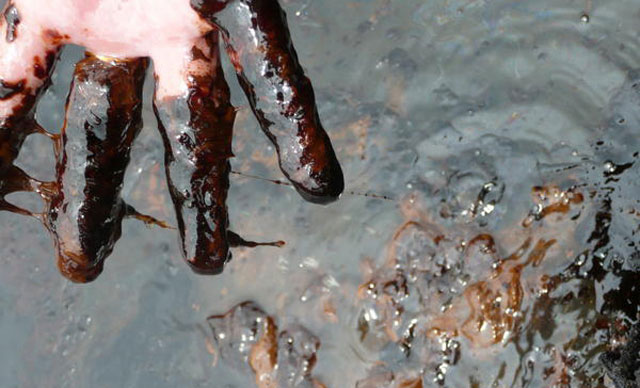
New legal principles mean multinational oil companies will have to take greater responsibility for operations in oil rich regions like the Niger Delta. Picture courtesy of Amnesty International
Investors should rigorously challenge oil companies regarding their environmental standards and impact on communities in oil-rich regions such as the Niger Delta, legal experts at the University of Essex have urged. Failure to do so could leave them exposed to serious financial risk.
A new academic report, Corporate Liability in a New Setting: Shell and the Changing Legal Landscape for the Multinational Oil Industry in the Niger Delta, focuses on legal actions taken against Shell but its conclusions could have repercussions for other multinational enterprises.
The independent report, which has been produced with support from Amnesty International UK and Fair Pensions, highlights a shifting legal environment in which the Shell Group can expect to face an increase in lawsuits. It urges the company to take greater responsibility for the actions of its subsidiaries and associate companies in the Niger Delta, and addresses the contradiction between Shell’s portrayal of itself in current litigation and statements it provides to investors.
Professor Sheldon Leader, Director of the Essex Business and Human Rights Project which published the report explained: “This is essentially a toolkit providing investors with the information they need to make informed choices about where they put their money, and show them how they can make a difference to the way companies such as Shell manage themselves.
“The Shell Group has previously operated in foreign countries with an assumption that legal responsibility would be carried by its subsidiaries and that lawsuits for the most part would be heard before the courts in the countries where the oil is located. But legal principles are changing and they leave Shell’s parent company, Royal Dutch Shell, and other members of the Shell Group vulnerable. Large scale lawsuits could increase and more could be brought before courts in the EU and US for damage done in places such as the Niger Delta.”
Professor Leader added that increased lawsuits bring the potential for further questions about the way Shell operates: “Current litigation in the Netherlands has highlighted major discrepancies in the way Shell portrays itself. Stock exchanges require companies to provide investors with information that is not materially misleading. For these purposes Shell maintains an image of a highly-disciplined, well-managed organisation. This is difficult to reconcile with the picture that Royal Dutch Shell has painted in the Dutch courts where it has deliberately distanced itself from the activities of its subsidiary in Nigeria claiming that even if it knew of problems that caused the damage alleged by victims, RDS could not be expected to interfere with the daily operations of its subsidiary.
“Shell has claimed for instance that local sabotage has caused pollution in the Niger Delta. Evidence suggests that although sabotage is sometimes to blame, so is badly-maintained equipment. And, regardless of how leaks are caused, when the oil starts spilling, Shell, as operator, has an obligation to move in swiftly and clean it up.
“This should cause shareholders great concern, not least because Shell emphasises its social responsibility, but also because increased litigation must raise questions about the company’s future financial liabilities.”
ends
Notes to editors
1. For further information please contact Professor Sheldon Leader, telephone: 01206 873311 or e-mail: leader@essex.ac.uk. Alternatively contact the University of Essex Communications Office, telephone: 01206 873529 or e-mail: comms@essex.ac.uk.
2. Corporate Liability in a New Setting: Shell and the Changing Legal Landscape for the Multinational Oil Industry in the Niger Delta is written by Professor Sheldon Leader, David Ong, Tara Van Ho, Anil Yilmaz, Sabine Michalowski, Ulisses Netto, Rosemary Danesi and Beata Wlodarczak of the Essex Business and Human Rights Project. The report is available online at: http://www.essex.ac.uk/ebhr/news/default.aspx
3. The Essex Business and Human Rights Project (EBHR), based at the University of Essex, provides research, advisory and training services focusing on human rights and environmental issues that arise from international business enterprises. It applies the latest, independent academic research to practical problems and in turn draws on practical experience to enrich future research.
Previous projects have included working with British Petroleum to formulate the first legally-binding human rights guarantee in an international investment agreement, analysis of the human rights impacts of property expropriation in Kosovo, and working with the Foreign and Commonwealth Office on the UK’s implementation of the UN Guiding Principles on Human Rights responsibility of Transnational Enterprises.
Further information is available online at: www.essex.ac.uk/ebhr/.